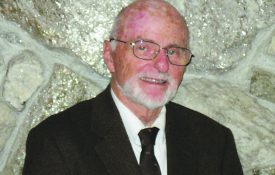-
Brain-Training Claims Not Backed by Science, PSPI Report Shows
A scientific review puts the claims behind brain-training games and apps to the test. Visit Page
-

Spelke Awarded Heineken Prize
APS William James Fellow Elizabeth S. Spelke of Harvard University, a leading psychological scientist and specialist on the cognitive development of infants, recently received the C. L. de Carvalho-Heineken Prize for Cognitive Sciences from the Visit Page
-

Robots for Research
From R2-D2 to Astro Boy to WALL-E, science fiction is riddled with diminutive, scrappy robots and androids that serve as sidekicks, assistants, and even heroes. But in the real world, childlike robots are increasingly at Visit Page
-

Mind Over Midterms
Psychological scientists are studying promising interventions designed to change the mind-sets of students who believe their intelligence is limited or fixed. Visit Page
-

Remembering Earl B. ‘Buz’ Hunt
Friends and colleagues of an acclaimed intelligence researcher celebrate his wit, charm, and scientific focus on individual differences in cognitive abilities. Visit Page
-

The ‘Stubborn’ Cerebellum
Psychological scientists don’t typically describe brain areas as fickle, two-faced, or agreeable, but APS William James Fellow Richard B. Ivry explains why he ascribes a specific personality trait to the region that controls our sensorimotor system. Visit Page

